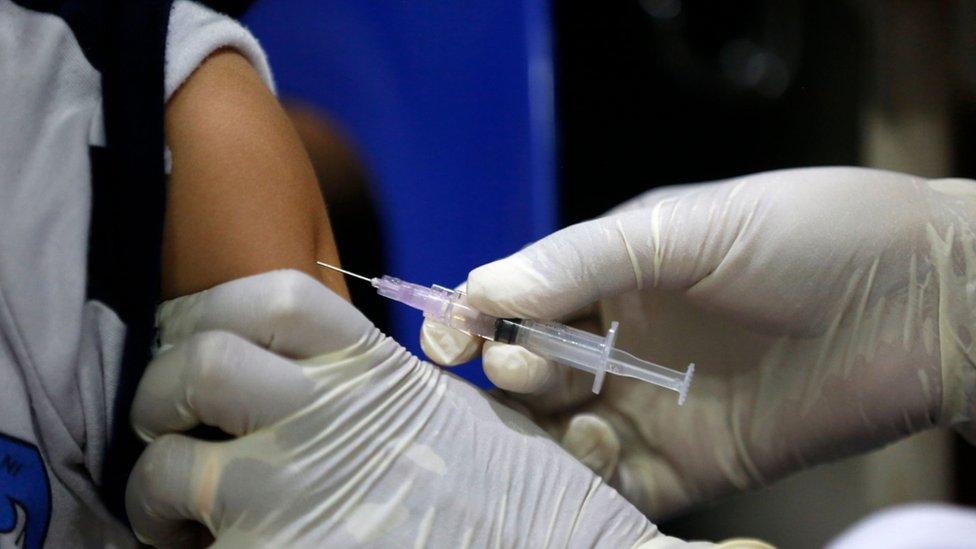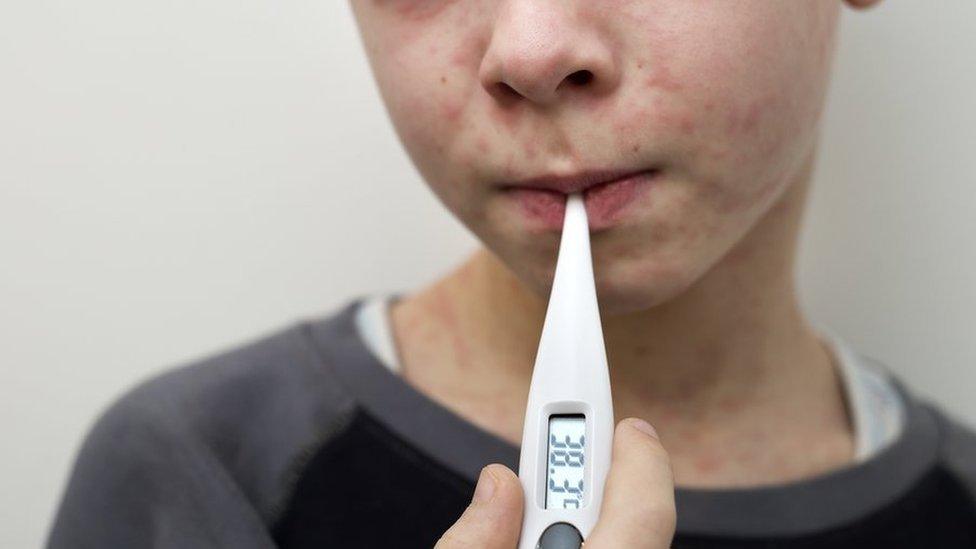Birmingham Children's Hospital isolating measles patients
- Published

The West Midlands has seen over 200 measles cases since 1 October.
Birmingham Children's Hospital is having to isolate measles patients to stop the disease spreading, a doctor at the hospital has said.
Chris Bird, an A&E consultant, said the measures felt like going "back to Covid" in some respects.
The West Midlands has seen more than 200 cases of measles since 1 October, with most of these cases in Birmingham.
There have also been smaller measles outbreaks in London as national vaccination rates miss targets.
Dr Bird said Birmingham Children's Hospital was currently seeing five to seven measles cases a day, which was "pretty extraordinary" and "completely out of the normal range".

Dr Chris Bird said Birmingham Children's Hospital was currently seeing five to seven measles cases a day
Earlier in January, the hospital said it had treated 50 cases in the past month, the highest number it had seen in years.
Dr Bird said it was challenging for medics to try to isolate these patients, in order to stop the disease spreading to vulnerable children at the hospital who had weakened immune systems.
"It feels a bit sort of like 'back to Covid'," he told told Radio 4's Today programme, referring to measures that included screening patients on arrival and wearing masks.
Measles is highly contagious and can lead to complications that include pneumonia, meningitis, blindness, and seizures. Babies, young children, pregnant women and those with weakened immune systems are more at risk.

The hospital said in mid-January that it had treated 50 cases in the past month, the highest number in years.
The MMR vaccine is extremely effective against measles, mumps and rubella, but in 2022-23 only only 85% of children in England , externalhad received two doses by the time they were five years old.
This is the lowest level since 2010-11 and below the World Health Organization's target of 95%.

Follow BBC West Midlands on Facebook, external, Twitter, external and Instagram, external. Send your story ideas to: newsonline.westmidlands@bbc.co.uk, external
Related topics
- Published18 January 2024
- Published12 January 2024
